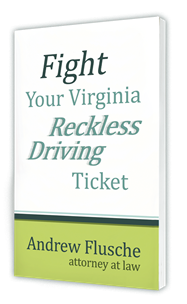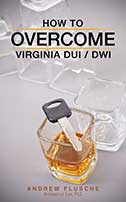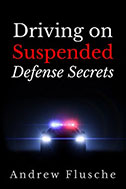What Should I Expect at an Arraignment in Virginia?
 Your name is called, and your heart pounds as you enter the courtroom. The judge looks at you over the bench. This is your arraignment—the moment when your charges are officially presented. What is an arraignment hearing? Will you walk out free, or will you face immediate legal hurdles? Knowing what to expect from the arraignment process in Virginia can ease your anxiety and help you prepare for what’s ahead.
Your name is called, and your heart pounds as you enter the courtroom. The judge looks at you over the bench. This is your arraignment—the moment when your charges are officially presented. What is an arraignment hearing? Will you walk out free, or will you face immediate legal hurdles? Knowing what to expect from the arraignment process in Virginia can ease your anxiety and help you prepare for what’s ahead.
Here’s what you should know about this important court appearance and how an attorney from Flusche & Fitzgerald can guide you through it.
Contact us today at 540-318-5824 to discuss your case and learn how we can help you.
What Is an Arraignment?
An arraignment is the first court appearance after an arrest, where the judge formally presents the charges against you. At this hearing, the judge ensures you understand the charges and informs you of your legal rights. Depending on the specific charge, your arraignment may occur within a few weeks or even the day after your arrest.
What Happens at an Arraignment in Virginia?
In Virginia General District Courts, the arraignment process follows a structured format.
Step 1: Charges Are Read
The judge or clerk will read the formal charges against you. If you do not understand them, your attorney can ask for clarification. This is your first official in-court notification of the specific crimes the State is accusing you of committing.
Step 2: Explanation of Rights
The judge will inform you of your fundamental legal rights, especially the right to an attorney. Some judges are more thorough with this explanation than others. Effectively protecting yourself throughout the legal process depends on understanding these rights.
If you do not have legal representation, the judge will ask if you wish to hire a lawyer or need a public defender (or court-appointed attorney). In Virginia, defendants facing jail time are entitled to an attorney.
Step 3: Entering a Plea
You will normally not be expected to enter a plea at a General District Court arraignment. But depending upon the type of case you’re facing, the path will be slightly different:
- Misdemeanor cases—your case will be set for trial, or
- Felony cases—the judge will schedule a preliminary hearing unless you waive that hearing.
If you’re asked for a plea, there are three options: guilty, not guilty, or no contest. Pleading guilty means admitting guilt, giving up your right to a trial, and accepting the court’s sentence. A no-contest plea is similar to a guilty plea, but you do not technically admit guilt.
If you plead not guilty, your case will move forward, and you’ll have time to gather evidence and build your defense.
Step 4: Bail Determination
The judge may address bail during the arraignment. Your bail is the monetary amount you’ll need to pay to ensure your return to court for any upcoming hearings. If you are in custody, the judge will assess your eligibility for bail or release based on specific factors, including:
- Criminal history,
- Flight risk,
- Severity of the charge, and
- Community ties.
If the judge grants a cash bail, you must pay the set amount to be released from custody until your next court date. If the judge grants a personal recognizance bail, you can be released by signing the forms.
Step 5: Setting Future Court Dates
The judge will schedule upcoming hearings, such as a preliminary hearing for felony charges or pretrial and trial dates for misdemeanors.
Can You Go to Jail at an Arraignment?
You might be concerned about whether or not you can be taken into custody at an arraignment hearing. The answer depends on several factors:
- If you are in custody at the time of the hearing, the judge may grant bail or continue your detention based on the severity of the offense and your criminal record.
- If you were released on a summons (common in misdemeanor cases), you normally will not be placed into custody at your arraignment.
- If the judge sets bail and you cannot afford it, you will remain in custody until you post it or until your case is resolved.
In serious felony cases, the prosecution may argue for denying bail, meaning you could remain in jail until trial. A lawyer at this stage is crucial for advocating for your release and obtaining fair bail conditions.
Why You Need an Attorney for Your Arraignment
An arraignment might seem straightforward, but it can impact where you spend your time before trial and the outcome of your case. An experienced defense attorney from Flusche & Fitzgerald can help you by:
- Ensuring you understand the charges. Legal terminology can be complex. We explain the process in an easy-to-understand manner so you can fully grasp the accusations and potential consequences.
- Protecting your rights. Our criminal defense attorney will work to uphold your constitutional rights.
- Negotiating bail. If you are in custody, our lawyer can present arguments for your release, highlighting stable employment, community ties, or lack of criminal history to show you are not a flight risk. If the judge sets a high bail amount, they can work to persuade the judge that a more fair amount is warranted.
- Waiving the arraignment. In many cases, especially for misdemeanor charges, we can work with the court to waive the arraignment and avoid your appearance altogether. This saves you the hassle of another day off from work, and it helps give you peace of mind that you will not go to jail at the arraignment.
Our knowledgeable attorneys begin protecting your rights from this early stage so you don’t make any quick decisions that can harm you for years to come.
Don’t Face Your Arraignment Alone. We Stand Between You and the Prosecution.
Standing before a judge can be intimidating, but we have your back. Your arraignment is not just a formality—it’s the first critical step in your defense. A wrong move can affect your freedom, finances, and future.
At Flusche & Fitzgerald, we’ve walked countless clients through this process, fighting for the most favorable outcomes possible. Our decades of combined experience mean we know how to fight for your rights, work towards reasonable bail terms, and build a solid foundation for your defense. Contact us today for a free consultation and take control of your defense.
Resources:
- General District Court Manual Criminal Case Procedures. Virginia Courts, link
- Basic Overview of the Criminal Justice System. City of Fredericksburg, link
- What is an arraignment? Dinwiddie County, link




